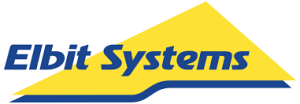Practical Applications
of Data Science
in Aerodynamic Design
Dr. Michael (Mickey) Weidenfeld

Computational fluid dynamics (CFD) is an invaluable tool for simulating flows in aerospace applications, generating vast quantities of data that present a goldmine for optimization and innovation. In this talk, we will explore how this data, is now being utilized with data science techniques to significantly enhance our in-house aerodynamic design capabilities. By providing practical examples, such as the design of quieter rotors, supersonic low-drag nose cones, low-distortion airborne optical turrets, and discussing our approaches to leveraging data science for efficient aerodynamic database production, I aim to provide insights into the supportive role of data science in advanced aerodynamic design practices.

Short Bio
Michael (Mickey) Weidenfeld specializes in computational fluid dynamics (CFD) spanning the disciplines of aerodynamics, aero-acoustics, aero-optics, and more recently, data science. With 20 years of experience in the field, he received his PhD from Technion in 2018, with a dissertation focused on airfoil aerodynamic noise. Currently, he heads the CFD Group at Elbit Land Systems, leading a highly passionate team, providing computational insights for better designing flying configurations.
Prior to his current role, he led a team at Rafael Advanced Defense Systems, enhancing computational capabilities and expanding research in aero-acoustics, aero-optics, and high speed flows. His work continually seeks to apply advanced computational techniques and data science to enhance the multi-disciplinary design of aerospace applications.
DR. Michael (Mickey) Weidenfeld

Michael (Mickey) specializes in computational fluid dynamics (CFD) spanning the disciplines of aerodynamics, aero-acoustics, aero-optics, and more recently, data science. With 20 years of experience in the field, he received his PhD from Technion in 2018, with a dissertation focused on airfoil aerodynamic noise. Currently, he heads the CFD Group at Elbit Land Systems, leading a highly passionate team, providing computational insights for better designing flying configurations.
Prior to his current role, he led a team at Rafael Advanced Defense Systems, enhancing computational capabilities and expanding research in aero-acoustics, aero-optics, and high speed flows. His work continually seeks to apply advanced computational techniques and data science to enhance the multi-disciplinary design of aerospace applications.

